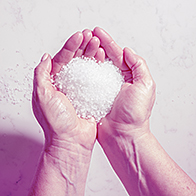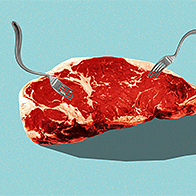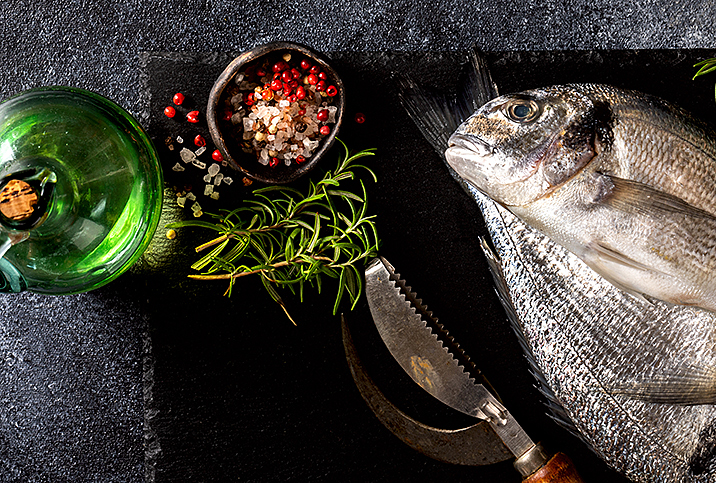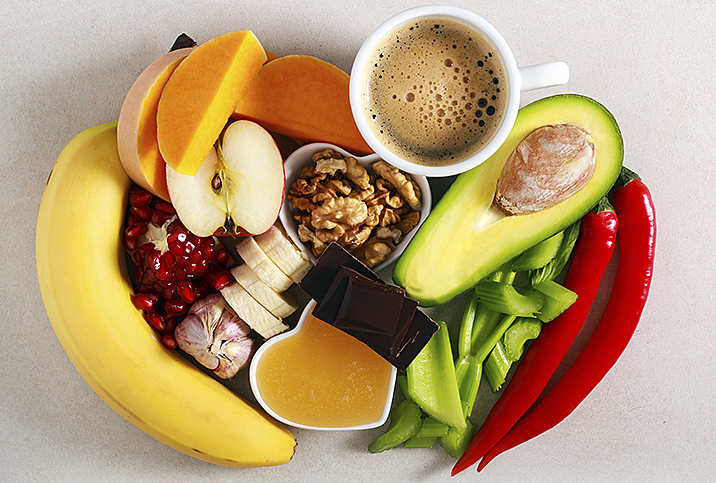When Spicing Up Your Sex Life, Hold the Salt
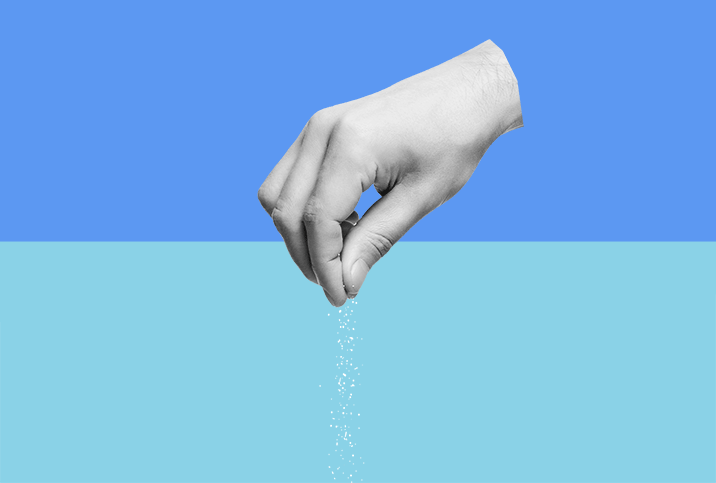
Many may not realize the quality of their sex lives, and even more so their erections, are heavily impacted by one of the most commonly used seasonings: salt.
Here's something you probably didn't know: Blood vessels that are damaged and unable to expand or contract are known as "stiffened." That's not good. What's worse, when your blood vessels are stiffened, there's a good chance your penis isn't.
Yep, when the mechanism of regulating blood pressure and blood flow to the organs is damaged, it can show up in various ways, including erectile dysfunction (ED). And one of the ways these important vessels get damaged is through the intake of too much salt.
So if you're looking at a night of dinner, a movie and see-what-happens, you may want to hold the salt. Research indicates that consuming too much salt may contribute to the development of ED, or the persistent inability to get and maintain an erection firm enough for penetrative sex.
The most common health condition linked to high salt intake is high blood pressure, or hypertension, according to T. Mike Hsieh, M.D., a urologist and the director of the Men's Health Center at the University of California San Diego.
"When you have high blood pressure, it can lead to what we call endothelial dysfunction," Hsieh said. "Basically, the blood vessels are damaged in a sense it cannot expand or contract the way it's supposed to in order to regulate blood flow."
Foods that are healthy for your heart are healthy for your erection.
This goes back to the stiffened blood vessels. Since an erection is a vascular event—blood has to travel through the penis—injuries to the blood vessels can prevent the body from doing what it is supposed to: generate an erection.
Helen Bernie, D.O., a urologist and director of sexual and reproductive medicine at Indiana University Health, gives her patients an easy-to-remember maxim: Foods that are healthy for your heart are healthy for your erection.
"They're like, 'I have ED, I don't know why.' You look at them and they have high blood pressure, high cholesterol, cardiovascular disease. It's all in what we feed ourselves," she said. "What comes in goes out. If you keep putting bad things inside your body, unhealthy things come out."
Giddy clinical nutritionist Lahana Vigliano explains what simple substitutions you can make to improve ED symptoms. Click here to watch the video.
Is any amount of salt healthy?
The American Heart Association (AHA) recommends no more than 2,300 milligrams of sodium per day, and for adults with high blood pressure, no more than 1,500 mg per day. Reducing your salt intake by 1,000 mg a day can improve your blood pressure, according to the AHA. Salt, or sodium chloride, is the most common form of sodium in American diets.
Approximately 90 percent of Americans ages 2 and older consume too much sodium, with the average daily intake at more than 3,400 mg per day, according to the Centers for Disease Control and Prevention (CDC).
Hsieh pointed out that most sodium intake is cleared by the kidneys. If you eat too much salt, the kidneys should be able to get rid of it because they regulate salt content. This means people who have kidney problems, or those born with one kidney, have to be especially careful about monitoring their salt intake. When the kidneys are not healthy, extra sodium builds up in the body.
Limiting processed foods is key
Bernie and Hsieh both stress how important it is to minimize the consumption of processed foods, which are loaded with salt. Examples of highly processed foods include cereal, potato chips, cheese, meat products, instant noodles and canned soups.
Bernie tells her patients to eat a diet rich in fruits and vegetables and low in red meat.
"Everywhere we go, it's highly processed foods," she said. "It's really important to try to eat at home, eat healthy, eat from the food pyramid, but really minimize that salt."
Many people are so used to eating salty foods, when they cut back on salt, their body can tell the difference, Bernie said.
"Your body eventually develops a taste for the natural flavors of food, and when you eat something that has such high salt content, it tastes terrible to you," she said. "It is a modifiable factor. Low-salt diets are just so much better for your heart."
Bernie said staying hydrated is also critical to your vascular health. She recommends drinking 2 liters of water a day. Regular cardiovascular exercise, getting a good night's sleep and reducing stress are also vital, she said, adding that stress increases the body's cortisol levels, which can also lead to endothelial damage.
Salt and erections
A high-salt diet can lead to ED even without the development of high blood pressure, according to a 2019 lab rat study published in the American Journal of Hypertension. A 2020 study in the Journal of Sexual Medicine found high salt intake had a direct effect on impairing erectile function in lab rats.
Hsieh said these recent animal studies show that even before hypertension occurs, high salt intake changes how the blood vessels react to cellular signals.
Fortunately, a lot of the damage done by high salt intake is reversible.
"Basically, there are different factors and signals that tell the blood vessels to react in certain ways. Having high salt intake disrupts that communication," he said.
This means ED drugs such as Viagra and Cialis may not work well for men who consume a lot of salt, because they rely on signals and pathways that may be hindered by salt intake.
Fortunately, a lot of the damage done by high salt intake is reversible, Hsieh said. Your body can recover if you decrease the amount of salt you're eating, and you may regain erectile function.
"You don't really need a lot of studies to really tell you that [excess salt] is probably not going to be good for you," Hsieh said. "We just hope that ED is a reason for people to make those changes."
Giddy urologist Dr. Edwin Morales talks about how a person's medical history can affect their erectile dysfunction. Watch the video here.







